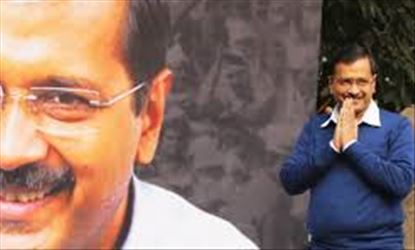
Earlier on sunday, chief minister arvind kejriwal released a "guarantee card" listing 10 promises, including free bus rides for students and deployment of "mohalla marshals" for women's safety, that his Aam Aadmi party (AAP) will fulfil if it is re-elected in Delhi. Accordingly from monday, AAP leaders and workers will spread across the National capital the "guarantee card" in hand to woo the electorate. Perhaps the release of this card indicates that Kejriwal's strategists, ahead of the delhi polls, have decided to focus on Brand Kejriwal rather than the AAP. One advantage of this is that it makes communicating with the public far easier.
Furthermore another is that Kejriwal, by putting the onus on himself, is urging the public to hold him accountable. The focus on Brand Kejriwal, and the lack of a chief ministerial face from the bjp, allows the AAP chief to craft a narrative around himself. Meanwhile this "guarantee card" may sound like a novelty to most Delhi-ites and some outside the National capital, this "guarantee card" has its origins in regions far away from Delhi. From 2015 to 2019, this idea was tested successfully in bihar, punjab and Andhra Pradesh.
Moreover the first trial occurred in 2015 when JD(U) chief nitish kumar in coalition with the RJD and congress, taking on the bjp, brought out his “Nitish ke saat nischay” (seven resolves of Nitish Kumar). Currently prashant kishor, who is advising Kejriwal, was the strategist in all three campaigns. Kishor’s fingerprints are all over the "guarantee card", only the nomenclature is different.




